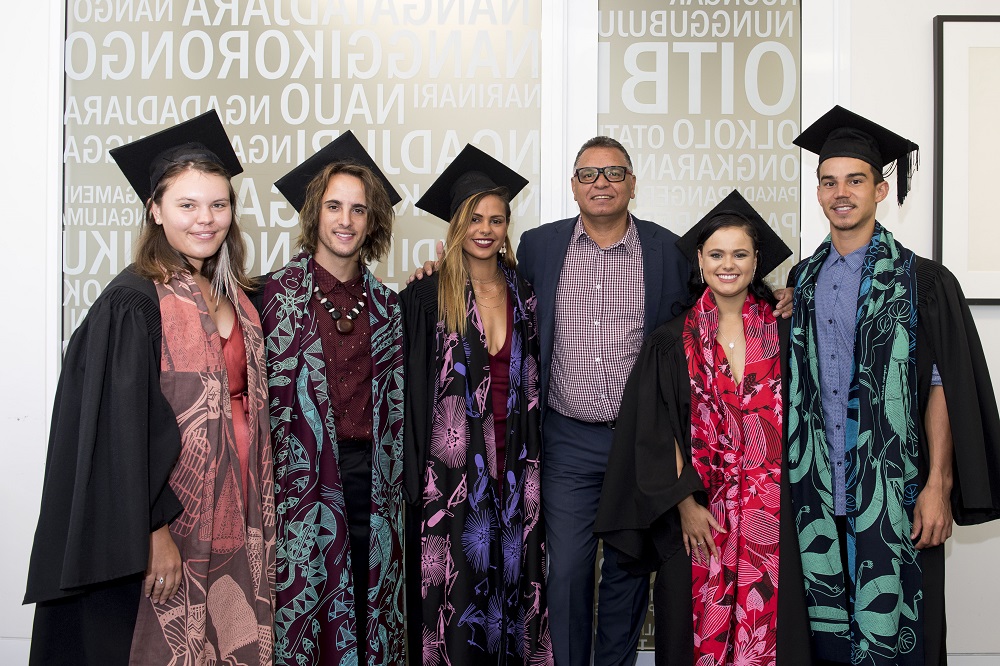This week marks National Reconciliation Week, an opportunity to promote the journey towards reconciliation and strengthen respectful relationships between Aboriginal and Torres Strait Islander people and non-Indigenous peoples.
Last Saturday also marked a year since the signing of the Uluru Statement from the Heart by about 300 Aboriginal and Torres Strait Islander community leaders at the Uluru Convention. The historic document called for the establishment of a First Nations Voice enshrined in the Constitution and despite being rejected by the government, expresses the sentiment of many Aboriginal and Torres Strait Islander communities across the nation.
Chair of NAISDA, Sean Gordon, was present at the historic signing of the Uluru Statement from the Heart. We had a chat with him about the significance of this document one year on and how we can all work together to advance the conversation around reconciliation.

One year on from the formation and signing of the Uluru Statement from the Heart, have you had an opportunity to reflect on the significance of this event?
I have been fortunate to have been involved in the Uluru Statement from the Heart since its formation, mainly as the Chair of Uphold & Recognise. To me, the biggest challenge that we as Indigenous Australians will always face when pushing for important reform such as the Uluru Statement is the fact that we make up just 3% of the population. Convincing the other 97% to join us on this journey is challenging.
This week is National Reconciliation week and on Saturday, we marked National Sorry Day. While these events are important, we can’t just keep having a culmination of events that recognise the progress of the past. We have to empower Indigenous people to take control of the issues that are still facing our community.
It is shocking to me that Australia has the highest incarceration rate of any Indigenous population in the world. On Saturday, we recognised National Sorry Day, but kids are still being removed from their families. Close to 18,000 Indigenous children are currently in out-of-home care – ten times that of non-Indigenous children – and this rate continues to rise. Nothing changes if nothing changes.
It’s tough to stand up for these injustices when you’re a small number of people. The Uluru Statement asked for a voice and for Indigenous communities to lead decision making about these issues. Also, and I think most importantly, it promoted the concept of truth-telling. Australia has never truly embraced its history – how the country was formed and the atrocities that occurred. We must acknowledge and accept this past and learn from it to ensure that it doesn’t ever happen again.

What can we do to keep the conversation moving forward?
We need more non-Indigenous people in the political and public spaces to come forward and stand up for Indigenous people. We need others to get behind the 3%.
I know that the Australian community is inherently good and will fight for what’s right – we saw this with the outcome of the same-sex marriage debate. When push comes to shove, I am confident that the Australian community would back a decision to support an Indigenous voice. The problem is that Parliament is not currently willing to present this choice to the Australian public.
How can organisations like NAISDA, and our young Developing Artists, play a role in continuing the national dialogue?
NAISDA’s been around for over 40 years and continues to play a huge role in sustaining, reviving and rejuvenating Aboriginal and Torres Strait Islander culture, both through the preservation of traditional cultural narratives and the expression of contemporary cultural identity.
When you look at the people who have passed through NAISDA’s doors, we have had a huge success rate in helping our Developing Artists to build their own cultural knowledge and experience and then share this with the world. People like Thomas E.S. Kelly, a young NAISDA graduate who just this weekend was awarded the Dreaming Award at the National Indigenous Arts Awards, are doing great work in continuing this legacy.